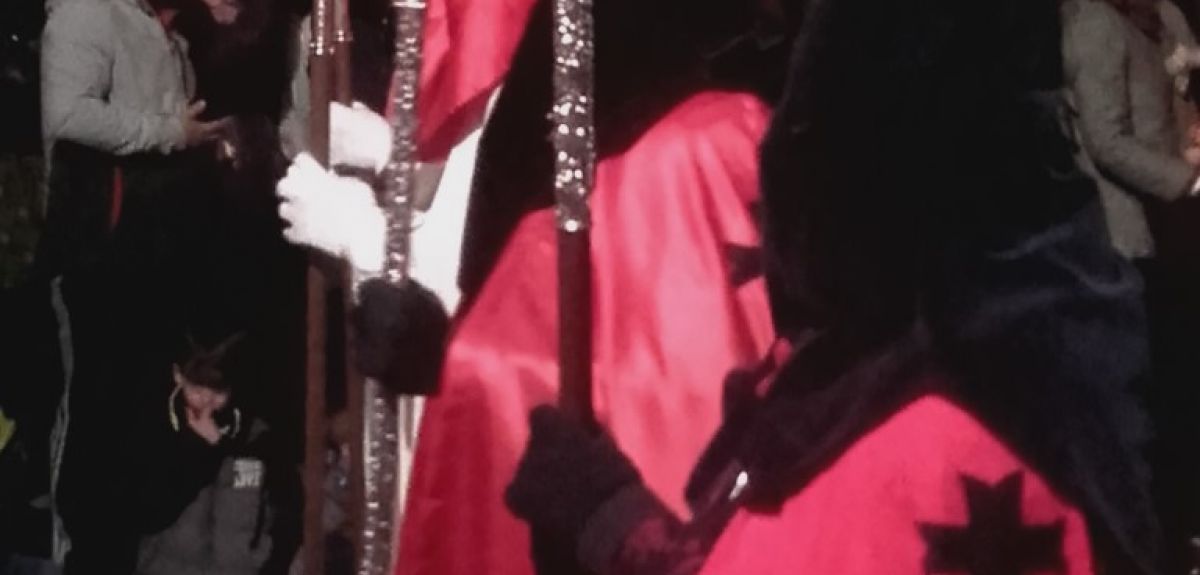
Covid-19: A very unholy Holy Week
With churches and places of worship closed, this would seem a very unholy Holy Week. Palm Sunday got it off to a modest start, with a video of a lonely-looking Pope Francis holding a massive palm, to remind us that this is the most important week of the Christian year. Processions of hooded penitents are absent from Coronavirus-hit Spanish squares and, around the world, even Easter Sunday will see pews empty and peals un-rung. Meanwhile, in the Jewish world, Passover meals, which take place this evening [Wednesday 8 April] will not be the usual large family gatherings. And all because of Covid-19.
Oxford Professor Diarmaid MacCulloch dismisses the Papal Interdict of 1208 as utterly different [from the Covid-19 closures]: a ‘political’ move by the papacy, not intended to protect churchgoers
A vocal group of angry churchgoers has maintained that, not since King John have the churches of England been shut. But Oxford Professor Diarmaid MacCulloch, professor of the History of the Church, dismisses the Papal Interdict of 1208 as utterly different: a ‘political’ move by the papacy, not intended to protect churchgoers. Nevertheless, more than a few people have asked where God is in this crisis and why churches are closed during the time of Covid-19.
In the United States, some churches have remained defiantly open, while others have followed medical advice and closed their doors. In the UK, it has become a controversial matter in church-going circles, although not in general and one letter to the Daily Telegraph pointed out that pubs were closed, so why not churches – likening religious life to a form of leisure activity.
According to Professor MacCulloch, social attitudes about church going changed in the late 1950s, when it ceased to be seen as a likely criterion for middle-class respectability: ‘There was a remarkable move away in the 1960s...followed by the collapse of the Sunday School movement...Church attendance was no longer a component of respectability.’
Yet the author of Reformation - Europe's House Divided 1490-1700 says, the current debate over church closures has a lot to do with Protestantism – which thrives on large-scale, noisy worship and does not have any history of silent spirituality. This, he says, was dispensed with, along with the monasteries at the time of the Reformation. Professor MacCulloch maintains: ‘Historically, Protestants do not have many spiritual resources to deal with spiritual isolation...sixteenth century Protestant churches were all about crowds getting together to hear sermons and to sing, especially metrical psalms.’
It is noticeable, he says, that in the US the divide on staying open has been very much along political party lines, with large Protestant mega-churches trying to remain busy: ‘There is a cultural chasm...mainstream churches such as the Episcopalians have closed, as the right thing to do.’
Once the monasteries were closed in the sixteenth century, Protestant churches lost spiritual resources associated with them
Professor MacCulloch, who also wrote Silence – A Christian History, adds: ‘Once the monasteries were closed in the sixteenth century, Protestant churches lost spiritual resources associated with them. The only Protestant Church to include silence in worship was Zwingli’s in Zurich and it wasn’t long before congregations got bored with it.’
He maintains: ‘It’s a long catch-up for the Protestants on silence. In the 20th century they started to realise this and ceased to be averse to monasticism.’
But, he points out, attempts to recreate such spirituality is a bit like trying to reinvent the wheel.
This Holy Week, though, Covid-19 social distancing means that many churchgoers in the UK and around the world have a chance to experience contemplation and meditation more commonly found in the cloister.